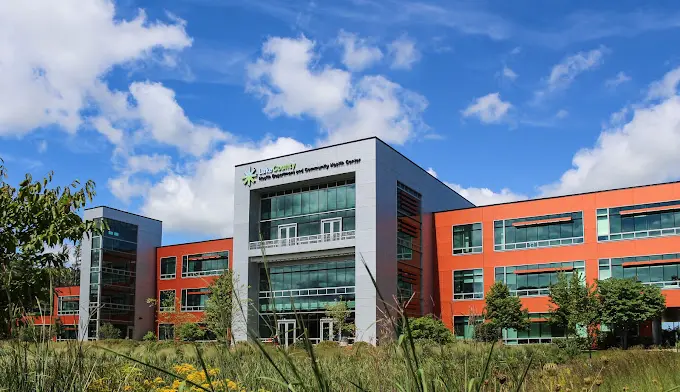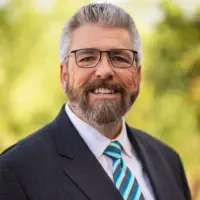They have great counselors and good staff, but they also have bad customer service. If you are waiting for an appointment be prepared to wait at least a couple of hours. They need more staff because they are always overcrowded.
About Lake County Health Department and Community Health Center
Lake County Health Department and Community Health Center is in Waukegan, Illinois. The center offers many community welfare services, including mental health and substance use disorder (SUD) treatment. There are programs for children, adolescents, and adults. Although some programs are in separate locations, most services are within walking distance of the main building on Grand Avenue.
Comprehensive Addiction Treatment in Waukegan
The health center is less than five miles from beautiful Lake Michigan and Waukegan Beach and offers inpatient and outpatient SUD treatment. They offer medication assisted treatment (MAT), an intensive outpatient program (IOP), and continuing care.
The Child and Adolescent Behavioral Services (CABS) provides outpatient substance use counseling, crisis intervention, medication management, and trauma informed therapy for children, teens, and their families.
Care Coordination and Support for Children Near Lake Michigan
Pathways to Success is a unique support program for children and their families that helps kids with significant behavioral health issues. The program helps improve family relationships, create family stability, improve school performance, increase the family’s participation in behavioral health services, and reduce contact with child welfare and law enforcement.
There are many other services available at this center. From addiction and mental health services to women’s health screenings, there are many services from which to choose.
Latest Reviews
Rehab Score
Gallery




Accepted Insurance
Other Forms of Payment
Private insurance refers to any kind of healthcare coverage that isn't from the state or federal government. This includes individual and family plans offered by an employer or purchased from the Insurance Marketplace. Every plan will have different requirements and out of pocket costs so be sure to get the full details before you start treatment.
Self-pay involves paying for treatment out of your own pocket. You can use savings or credit, get a personal loan, or receive help from family and friends to fund your treatment. If you don't have insurance or your insurance plan doesn't cover a specific program, self-pay can help ensure you still get the care you need.
Sliding scale payments are based on a client's income and family size. The goal is to make treatment affordable to everyone. By taking these factors into account, addiction recovery care providers help ensure that your treatment does not become a financial burden to you or your family, eliminating one barrier to care.
Medicare is a federal program that provides health insurance for those 65 and older. It also serves people under 65 with chronic and disabling health challenges. To use Medicare for addiction treatment you need to find a program that accepts Medicare and is in network with your plan. Out of pocket costs and preauthorization requirements vary, so always check with your provider.
Military members, veterans, and eligible dependents have access to specific insurance programs that help them get the care they need. TRICARE and VA insurance can help you access low cost or no cost addiction and mental health treatment. Programs that accept military insurance often have targeted treatment focused on the unique challenges military members, veterans, and their families face.
Medicaid is a state based program that helps lower-income individuals and families pay for healthcare. Medicaid covers addiction treatment so those enrolled can use their coverage to pay for rehab. When a program accepts Medicaid the client often pays very little or nothing out of their own pocket.
Addiction Treatments
Levels of Care
The purpose of this program is to prevent and treat chronic/severe emotional and psychiatric disorders. Services in this program include diagnostic evaluation, psychiatric assessment, and crisis intervention to adults who have a history of chronic mental illness. Clients who receive their psychiatric medication services may also qualify for individual and/or group psychotherapy, depending on the type of funding the client has.
When participating in an inpatient rehab program, you'll reside at the treatment center for the duration of the program. Your housing and meals are provided, allowing you to focus on your recovery without outside triggers, stressors, and other distractions. You'll receive daily addiction counseling, drawing on various psychotherapeutic approaches like cognitive behavioral therapy (CBT) and motivational interviewing. Many inpatient drug rehabs also offer complementary holistic therapies, such as yoga, meditation, or animal therapy, and creative arts therapy.
Rehab aftercare programs provide a full continuum of care for clients who are exiting inpatient treatment. Though outpatient care is often considered an element of drug rehab aftercare, services typically continue for the remainder of the clients' life and long after formal treatment is completed. Clients work with their case managers and care team to formulate a customized portfolio of medical, mental health, and social service resources designed to evolve as the client's needs change.
The shared apartment program is supported, transitional housing designed to assist individuals to achieve necessary skills to live independently in the community. CILA (Community Integrated Living Arrangements) is a supervised, supportive service to those individuals with severe emotional difficulties who have had at least 3 hospitalizations in a state-operated facility. The goal of CILA is to promote residential and emotional stability through carefully tailored service planning with client, family, significant others and staff of Behavioral Health.
During the medically supervised detox process, licensed medical professionals monitor your vitals and administer medications meant to help alleviate the physical symptoms of withdrawal. The process can take between five and seven days, although the actual length depends on your individual needs. In most cases, medically assisted detox is partially, if not fully, covered by insurance.
Treatments
The central task of the Dual Diagnosis Group is to help clients learn more about the interaction between addiction and mental illness, and to help them increase stability in adult functioning through the establishment of sustained sobriety and continued recovery from mental illness. You must be receiving services from at least one of our Behavioral Service programs to be in this group.
Mental health rehabs focus on helping individuals recover from mental illnesses like bipolar disorder, clinical depression, anxiety disorders, schizophrenia, and more. Mental health professionals at these facilities are trained to understand and treat mental health issues, both in individual and group settings.
Programs
Adult rehab programs include therapies tailored to each client's specific needs, goals, and recovery progress. They are tailored to the specific challenges adult clients may face, including family and work pressures and commitments. From inpatient and residential treatment to various levels of outpatient services, there are many options available. Some facilities also help adults work through co-occurring conditions, like anxiety, that can accompany addiction.
Young adulthood can be an exciting, yet difficult, time of transition. Individuals in their late teens to mid-20s face unique stressors related to school, jobs, families, and social circles, which can lead to a rise in substance use. Rehab centers with dedicated young adult programs will include activities and amenities that cater to this age group, with an emphasis on specialized counseling, peer socialization, and ongoing aftercare.
Recovery is most successful when clients feel accepted and validated by their peers and treatment providers. Facilities that offer LGBTQ-inclusive programming are committed to creating a safe space where everyone can grow and recover without fear of judgment or discrimination. They will have dedicated policies in place to create a safe and supportive environment that fosters free expression.
Clinical Services
Cognitive Behavioral Therapy (CBT) is a therapy modality that focuses on the relationship between one's thoughts, feelings, and behaviors. It is used to establish and allow for healthy responses to thoughts and feelings (instead of unhealthy responses, like using drugs or alcohol). CBT has been proven effective for recovering addicts of all kinds, and is used to strengthen a patient's own self-awareness and ability to self-regulate. CBT allows individuals to monitor their own emotional state, become more adept at communicating with others, and manage stress without needing to engage in substance abuse.
In the DBT Group patients must be involved in individual therapy at the clinic to be in this group. The group uses instructional lecture, group discussion, behavioral rehearsal with modeling and role-play, written handouts, and homework assignments to help you decrease unmanageable issues in your life. Mindfulness skills are central to this group.
Group therapy is any therapeutic work that happens in a group (not one-on-one). There are a number of different group therapy modalities, including support groups, experiential therapy, psycho-education, and more. Group therapy involves treatment as well as processing interaction between group members.
In individual therapy, a patient meets one-on-one with a trained psychologist or counselor. Therapy is a pivotal part of effective substance abuse treatment, as it often covers root causes of addiction, including challenges faced by the patient in their social, family, and work/school life.
The Trauma Treatment Program provides services to Lake County residents, ages 2 through 18, who have experienced trauma. Trauma Focused—Cognitive Behavioral Therapy is an evidenced-based treatment proven effective in working with children and adolescents who have experienced trauma. TF-CBT teaches us how to cope with unhelpful or inaccurate thoughts, confusing and overwhelming feelings, and unhealthy or risky behaviors that the experience of trauma many times causes. Topics include: Education about Trauma, Relaxation, How to Identify and Express Emotions.
During couples therapy in Illinois, you may work on a variety of relationship challenges. Couples therapy can address topics such as finances, children, health, addiction, intimacy, external stressors, and family relationships. You'll develop tools to address these types of challenges in healthy ways.
Family involvement with treatment, when clinically helpful to a client's progress, is encouraged. Case managers are available to assist families in obtaining the resources necessary to restore balance. They strive to help youth and their families develop positive coping techniques, communication skills and the means to manage mental health issues, while maintaining a healthy lifestyle.
Amenities
-
Residential Setting
-
Private Rooms
Staff & Accreditations
Staff

Sam Johnson
Interim Executive Director
Accreditations

The Joint Commission, formerly known as JCAHO, is a nonprofit organization that accredits rehab organizations and programs. Founded in 1951, the Joint Commision's mission is to improve the quality of patient care and demonstrating the quality of patient care.
Joint Commission Accreditation: Yes
Contact Information
3010 Grand Avenue
Waukegan, IL 60085
